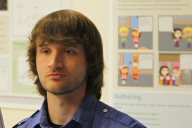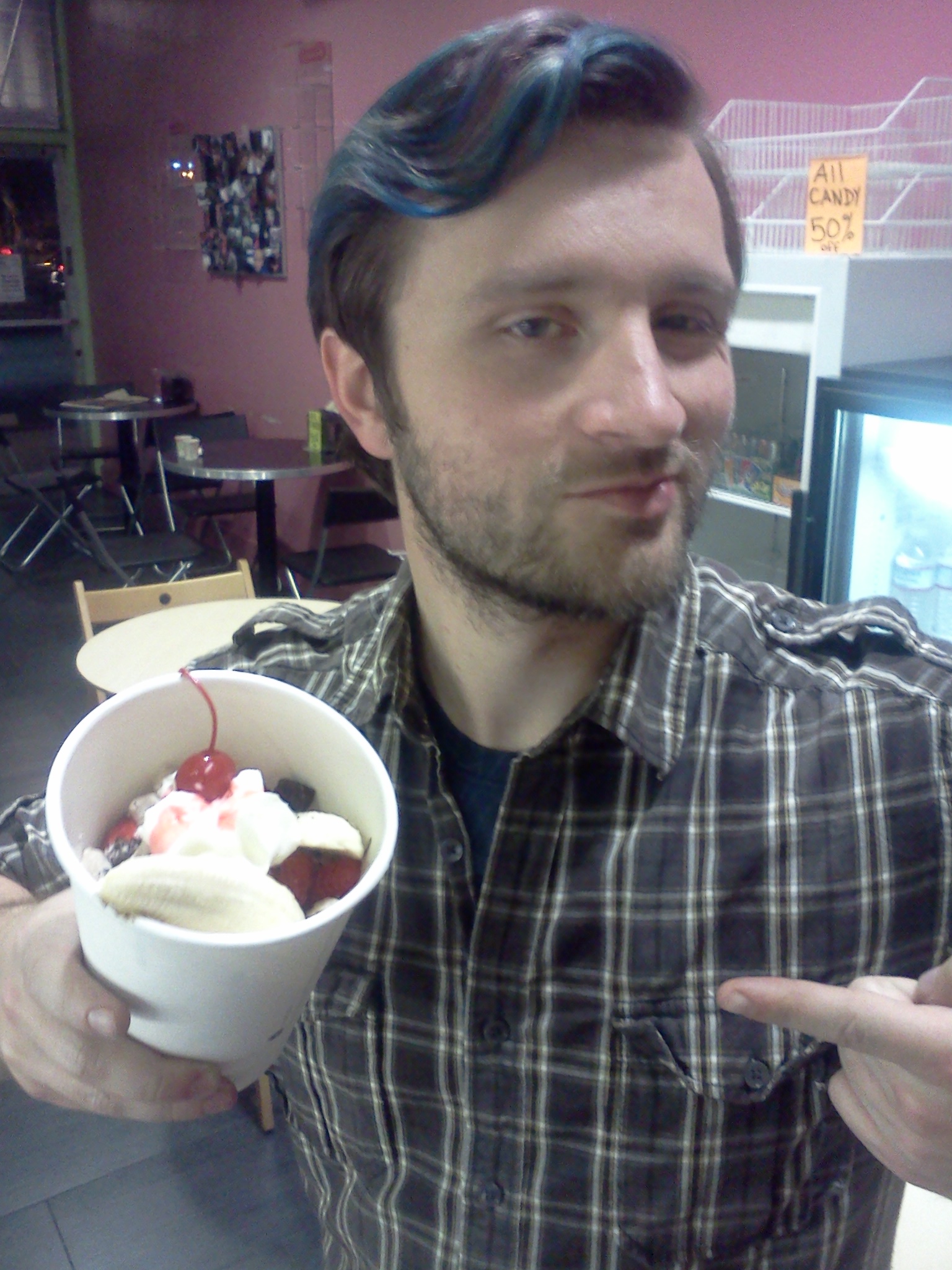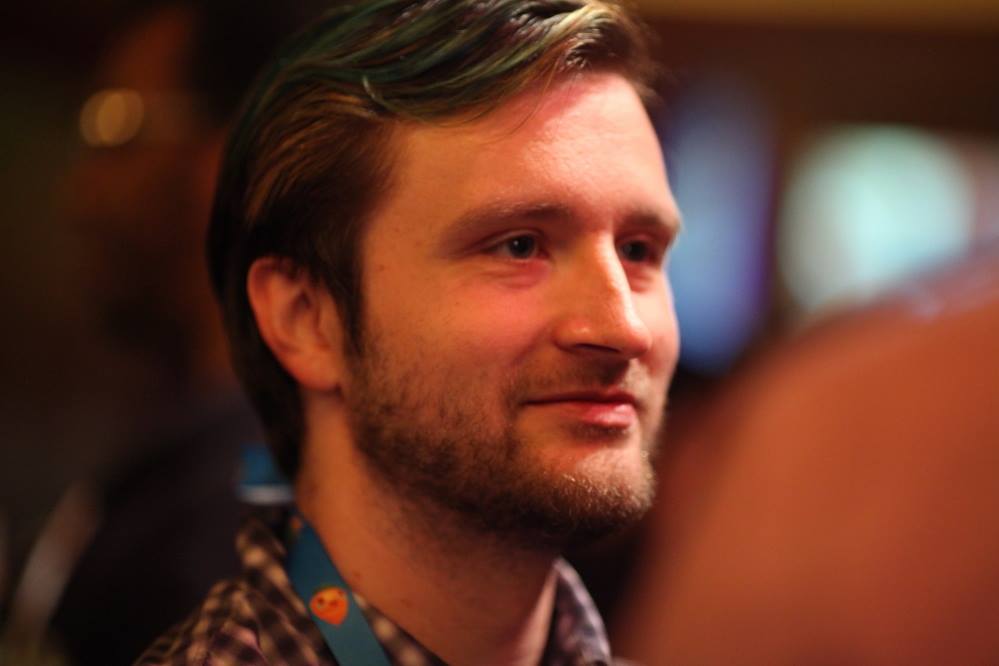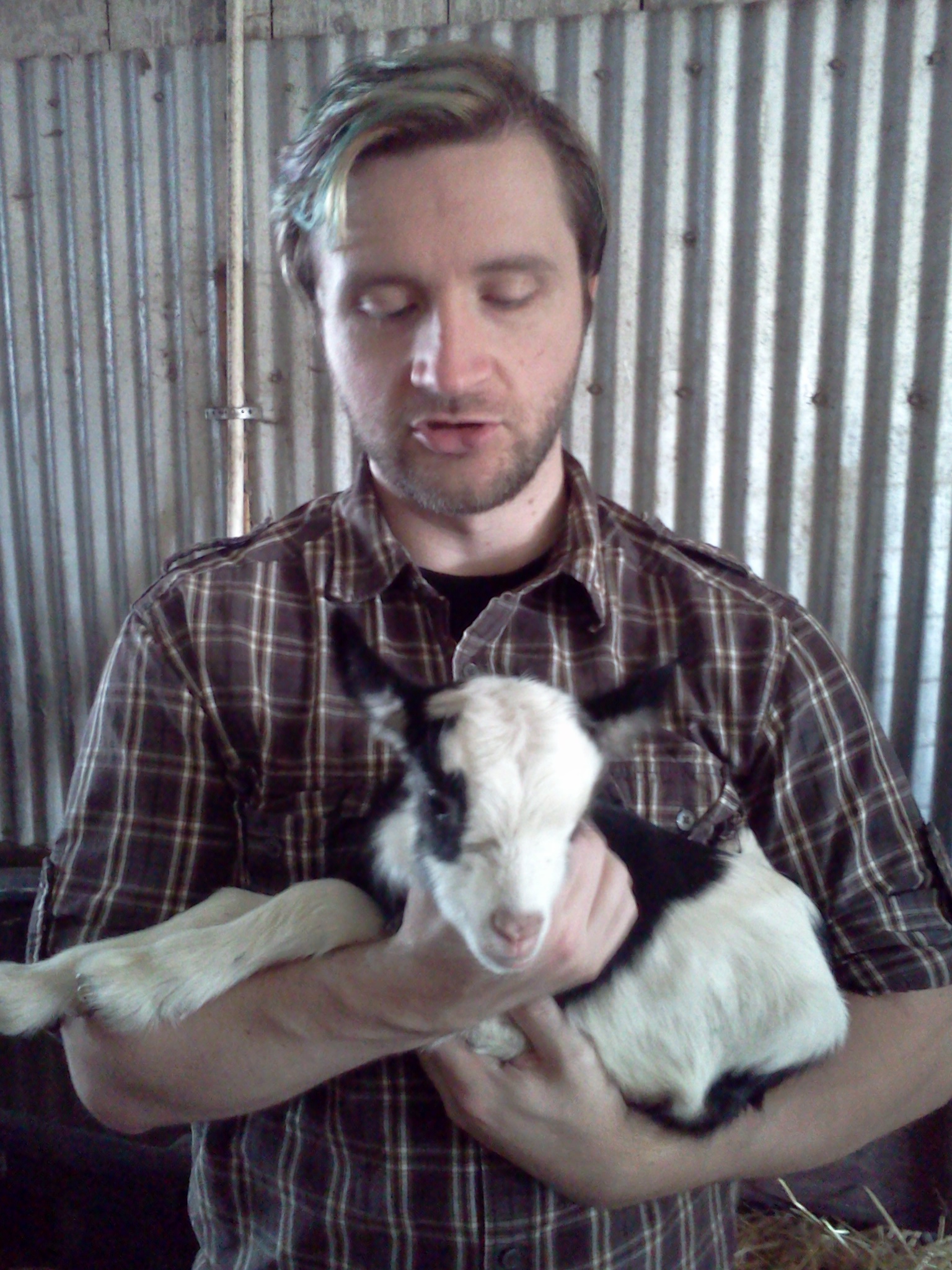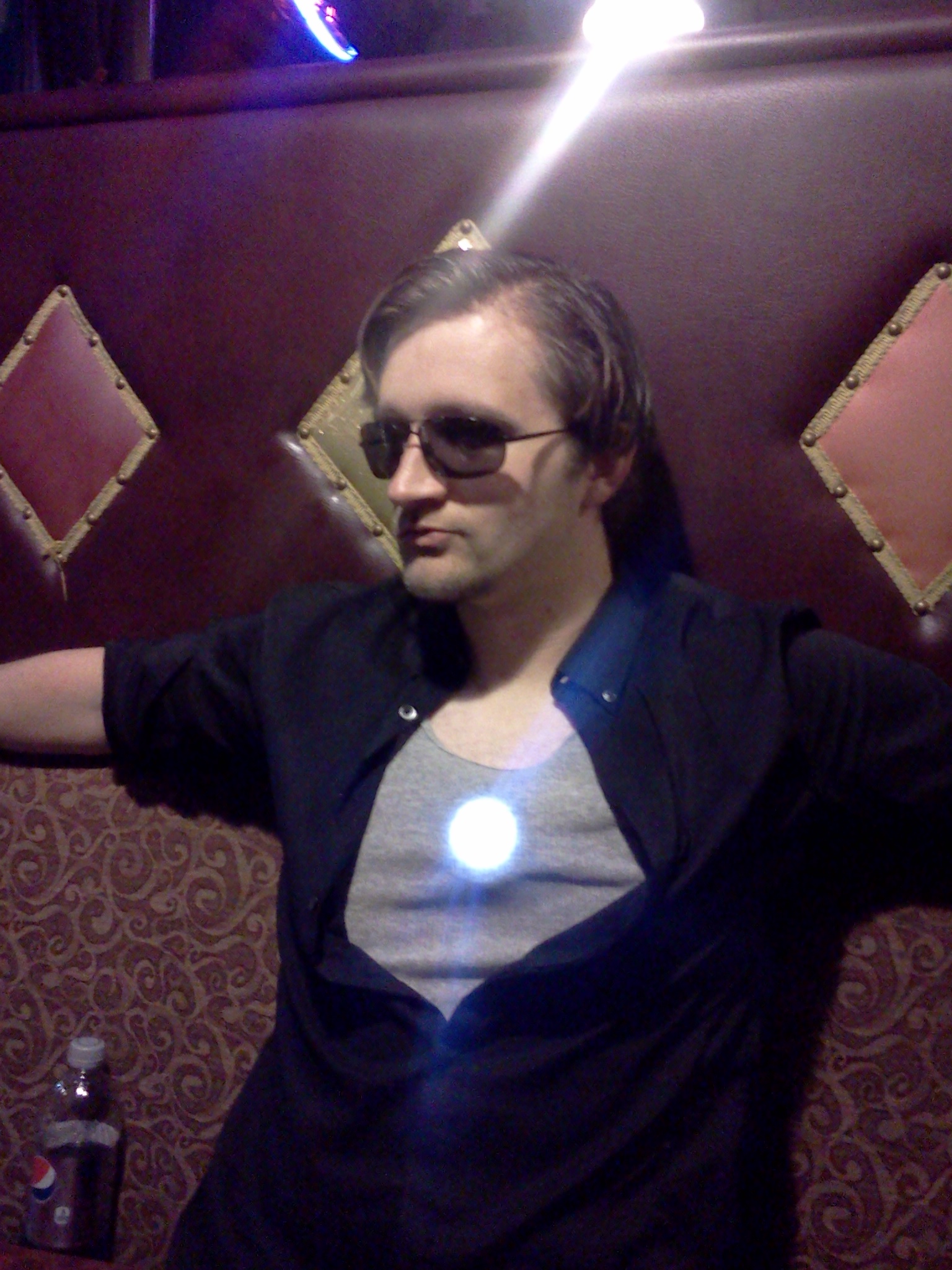Me, Games and American University!
I am extremely excited to announce that I have accepted a tenure-track position at American University! Starting in the fall of 2014, I will join the Game Lab as a faculty member of the Department of Computer Science.
Projects
Prom Week
Prom Week, a finalist in the Technical Excellence category of the 2012 Independent Games Festival and a nominee for the IndieCade 2012 games festival, is the first example of new game genre enabled by playble models of social interaction (such as the one I have developed in my dissertation work, see CiF below). Prom Week is fundamentally about the social interactions and relationships of a group of high school students during the week before their high school prom. The player helps the characters accomplish their goals through solving social puzzles. As a byproduct of game play, a new story is created that is based deeply on how the player changes the social lives of the students. This project is heavily based on my doctoral research and has been experienced by thousands of players. I initiated Prom Week and gathered a collaborative design and development team around myself to develop the game.
IMMERSE
IMMERSE is a projected funded under the DARPA Strategic Social Interaction Modules program. The goal of the project is to produce a game-based training environment that teaches people how interact as "good strangers" via practicing the skills necessary to have successful social interactions in unfamiliar languages and context. This will be accomplished via virtual dramatic scenarios, realized within the Unity game engine, in which the player interacts with computer-controlled autonomous characters in high-consequence social environments, learning how to quickly recognize and navigate the social interactions norms in these environments. We build upon the autonomous character and story management technologies successfully demonstrated in the interactive drama Façade, and the social simulation system successfully demonstrated in the experimental game Prom Week.
Comme il Faut
The implementation of my doctoral research, Comme il Faut (CiF) is an artificial intelligence system that implements a playable, authorable model of social interactions between characters in a storyworld. Based on dramaturgical analysis, CiF leverages normal patterns of social interactions, or social exchanges, in conjunction with a production system style set of encoded social norms to allow characters to not only enact performances consistent with the storyworld but to determine what performances are appropriate given a character's history, relationships, and present characters. CiF is designed as a component to be used in video games and interactive narratives to allow for playable social interaction and is used heavily in Prom Week.
Holodeck
Engaging supporting and background characters are important to many media forms -- from film to novels. But games, virtual worlds, and training simulations have lacked such characters. In this project we developed a theory of background character realism, built Second Life bots to test the theory, and then had human players compare these bots to human-controlled background characters. A full study then determined that the Holodeck avatars were seen as very close to human-driven avatars in the experiences of the study's participants. I served as the lead behavior analyst and prototyper.
Real-Time Strategy Game AI
The goal for this project was to use expert domain knowledge of general real-time strategy (RTS) game play to create an AI system capable of playing complete games in the Warcraft 2: Tides of Darkness clone, Wargus. By breaking down the game play into salient domains, such as strategy, tactics, economy, and construction, each with their own manager, I created an integrated AI system based on domain knowledge that was easy to extend and adaptable to the opponent's gameplay. The AI system was written in a behavior language (ABL) which is a reactive planner implementation of a behavior, desire and intent (BDI) system. This served as my M.S. project.
Folding@Clusters
Folding@Clusters is an adaptive framework for harnessing low latency parallel computation resources for protein folding research. It combines capability discovery, load balancing, process monitoring, and checkpoint/restart services to provide a platform for molecular dynamics simulations on a range of grid-based parallel computing resources including clusters, SMP machines, and clusters of SMP machines. The software uses open source building blocks, such as the GROMACS molecular dynamics package and the LAM/MPI communications library, to provide the lowest level functionality. Building on this foundation we constructed a three tiered architecture: cluster, node, and science core. This provides a basis on which to abstract the process of performing a molecular dynamics simulation. This includes work unit preparation, distribution, checkpointing, failure recovery, and result aggregation, on a compute resource with arbitrary capabilities (CPU speed, CPU count, memory, etc.). I served as a senior developer and system administrator for this project.
About Me
Josh McCoy is a game developer, computer scientist and cross-disciplinary researcher whose work lies at the confluence of game technology, social science, artificial intelligence and design. His goal is to create playable experiences that communicate to broad audiences and critically address the challenges present in our society while expanding the boundaries of technology. The most recent products of his research involve combining artificial intelligence techniques with social science to create meaningful, responsive and socially engaging game experiences.
He was a lead on the experimental video game Prom Week, a game that enables a new level of social interaction between characters via an artificial intelligence system that leverages social science to make social behavior playable. This work has been nominated for the Technical Excellence award in the Independent Games Festival and an IndieCade award. Additionally, his research has been used in a DARPA-funded project to enable trainees to engage socially responsive characters with full-bodied interaction for the purpose of teaching good stranger behavior to soldiers in foreign lands.
Here is my CV.
